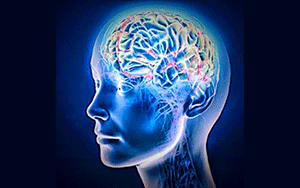Alzheimer's disease is the most common cause of Dementia .Dementia is a collective name for progressive degenerative brain syndromes which affect memory, thinking, behavior and emotion.
Symptoms may include:
- Loss of memory
- Difficulty in finding the right words or understanding what people are saying
- Difficulty in performing previously routine tasks
- Personality and mood changes
Diagnosis of Dementia
There is no simple test to make a diagnosis and dementia can only be confirmed with certainty by examining the brain at post mortem. 1-lowever, a reasonably accurate diagnosis of dementia can be made by taking a careful history of the person’s problem from a closerelativc or friend, together with an examination of the person’s physical and mental status. It is important to exclude other treatable conditions that cause memory loss such as depression urinary infection, vitamin deficiency and brain tumour.
Symptoms
Typically, Alzheimer’s disease begins with lapses of memory. difficulty in finding the right words for everyday
objects or mood swings. As Alzheimer’s progresses. the person may
- Routinely forget recent events, names and faces and have difficulty in understanding what is being said
- Become confused when handling money or driving a car
- Undergo personality changes, appearing to no longer care about those around them
- Experience mood swings and burst into tears for no apparent reason or become convinced that someone is trying to harm them
In advanced cases, people may also:
- Adopt unsettling behavior like getting up in the middle of the night or wander off and become lost
- Lose their inhibitions and sense of suitable behavior, undress in public or make inappropriate sexual advances.
What care should we provide to patients with Alzheimer’s disease ?
In treating patients with dementia as definitive cure for the condition is not possible. It is very important to provide as much supportive care as possible. Many patients have lost their control over urination; they can be helped with catheters or condom drainage. Frequent change of posture is important to prevent pressure sores. Feeds should be given in upright position as far as possible to prevent fluids from entering in to lungs.
How to handle emotional outbursts of a patient with dementia?
Emotional outbursts and violent behavior are very common problems that caregivers face when dealing with a patient having dementia. Usually, these emotional outbursts are inappropriate responses to any of the basic physical needs of the patient, like hunger, sleep or desire to evacuate bowels. As the patient’s response to these physical needs is altered in dementia, he adopts a violent behavior. Identification of the cause of such outbursts and fulfilling the physical need usually takes care of such episodes. Being told you have Alzheimer’s disease, vascular dementia or any other cause of dementia can come as a shock, even if you have felt that something was not quite right.
Common questions asked about Alzheimer Disease
1.My mother has Alzheimer's disease. Will I get it?
There are a few very rare cases where Alzheimer’s disease does run in families. In these cases, there is a direct link between an inherited mutation in one gene and the onset of the disease. Most cases of Alzheimer’s disease are not of the type that is passed on directly in this way. If a family member has a normal form of Alzheimer's disease. the risk to close relatives is around three times higher than the risk for a person of similar age who has no family history of the disease.
2. Is there a cure?
There is currently no cure for Alzheimer's Disease or for most other causes of dementia. Nor can a cure be expected in the foreseeable future.
3. Are there any drug treatments for. Alzheimer’s disease?
Although there are no drugs that can cure Alzheimer’s disease. there are a number of drug treatments that can help some people with Alzheimer’s disease. The currently available treatments can slow down the progression of the disease in some cases for periods between 6 and 18 months. The main class of such compounds is the cholinesterase inhibitors. These drugs work by reducing the breakdown of acetylcholine in the brain. Acetylcholine is a chemical substance that occurs naturally in the brain and enables nerve cells in the brain to pass to messages to each other.
Research has shown that many people with Alzheimer’s disease have a reduced amount of acetylcholine and it has thought that the loss of this chemical may result in deterioration of memory.
4. Can Alzheimer’s disease be prevented?
Not enough is known about the causes of Alzheimer’s disease for any preventive measures to be recommended.
5. Dad has become Violent. What can I do
It is important to remember that your father’s aggression is not directly aimed at you but is part of his illness. It is common for people who have Alzheimer's Disease to pass through a phase of being angry and sometimes aggressive.
Although this phase will pass, it may help you in the meantime to consider some of the things that may be triggering your father’s anger. For example. he may not like being forced to accept help to do things that he used to do on his own, such as washing. Sometimes hunger, the need to pass urine or constipation can lead to disruptive behavior. If the angry outbursts have only started recently, they may be due to an infection or pain. Once you have been able to identify some of the things that tend to make your father angry, you may be able to reduce the number of angry outbursts.
6. Memory Loss in Alzheimer’s
Declining memory, especially short-term memory, is the most common early symptom of dementia. People with ordinary forgetfulness can still remember other facts associated with the thing they have forgotten. For example, they may briefly forget their next-door neighbor’s name but they still know the person they are talking to is their next- door neighbor. A person with dementia will not only forget their neighbor’s name but also the context.
The most common early symptoms of dementia are:
- Memory loss
- Difficulty performing familiar tasks
- Problems with language
- Disorientation to time and place
- Poor or decreased judgement
- Problems with keeping track of things
- Misplacing things
- Changes in mood or behavior
- Changes in personality
- Loss of initiative
Dr. D. Shivanand Pai, MD; DM (NEURO) , Associate Professor of Neurology , KMC, Mangaluru . Clinic : Amrutha Multi Speciality Clinic, Atthavar, Mangaluru . Ph: 0824 2443342, 2443340, 2442341
Let the Truth be known. If you read VB and like VB, please be a VB Supporter and Help us deliver the Truth to one and all.
Ghaziabad (UP) (PTI): Three minor sisters died after allegedly jumping off the balcony of a ninth-floor flat in Ghaziabad early on Wednesday, police said.
Assistant Commissioner of Police (Shalimar Garden) Atul Kumar Singh said the police received information around 2.15 am about three girls jumping off the balcony of the ninth-floor apartment in a tower of Bharat City, located under the Teela Mor police station area.
On reaching the spot, the police found that the girls -- Nishika (16), Prachi (14) and Pakhi (12) -- daughters of Chetan Kumar, had fallen to the ground floor and suffered fatal injuries, the ACP said.
They were rushed by ambulance to a hospital in Loni, where doctors declared them dead on arrival, he added.
The police have initiated legal formalities and are investigating the circumstances leading to the incident, officials said.





